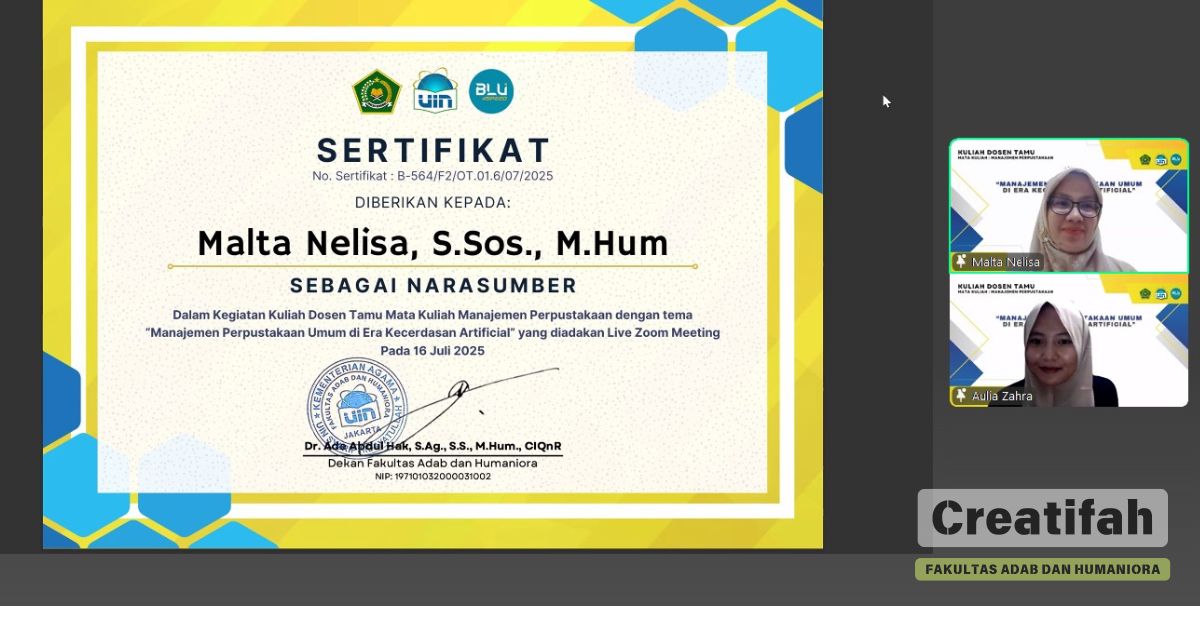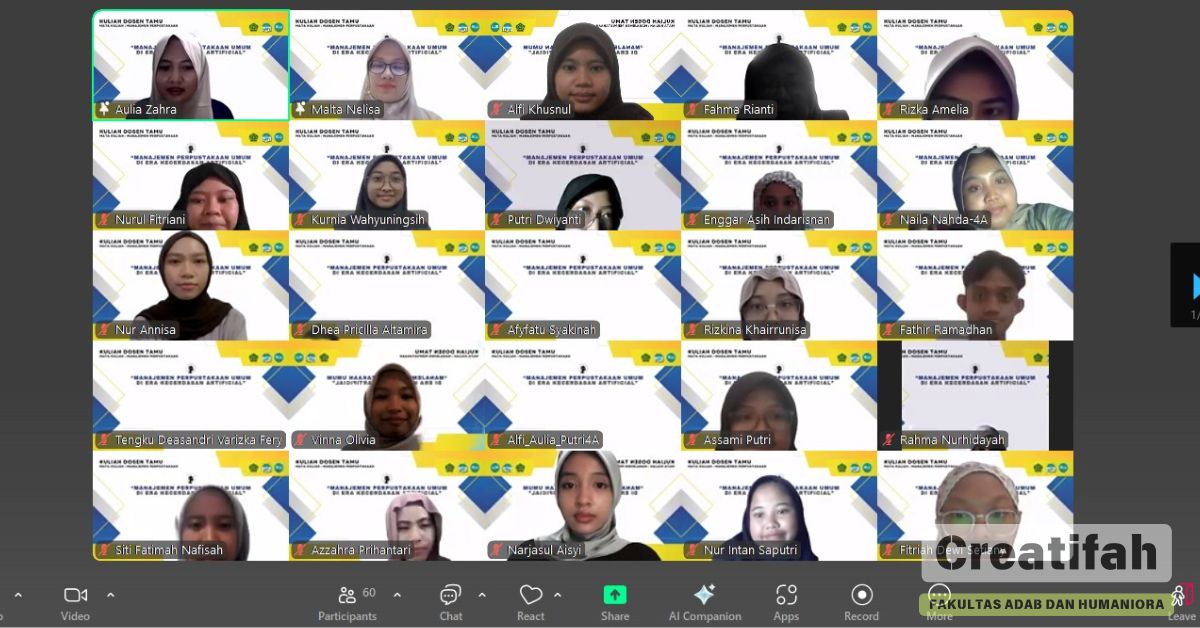Guest Lecture: Public Library Management in the Age of Artificial Intelligence
Zoom Meeting, FAH Online News – The Library and Information Science study programme hosted a guest lecture on “Public Library Management in the Age of Artificial Intelligence.” The lecture was delivered by Malta Nelisa, S.Sos., M.Hum., Head of the Information, Library, and Archival Studies Programme at Universitas Negeri Padang (State University of Padang), on Wednesday, 16 July 2025, through Zoom Meeting.
The event was initiated by Fahma Rianti, M.Hum., who teaches the Library Management course. It was attended by 62 participants, comprising students and lecturers from the Library and Information Science programme. The session opened with welcoming remarks from Aulia Zahra, who served as moderator, followed by a recitation of verses from the Qur’an by Siti Sunenah and the Qur’an translation by Alissya Aura Maharani.
The next session featured an opening speech from Siti Maryam, S.Ag., S.S., M.Hum., Head of the Library and Information Science Programme at UIN Syarif Hidayatullah Jakarta. In her address, she expressed that the material presented would equip students to face the challenges of the AI era in librarianship.
“This is a valuable opportunity and preparation for us as librarians amidst the rise of AI, enabling us to be well-prepared in the future,” she said.
Following that, the main lecture was delivered by Malta Nelisa, S.Sos., M.Hum., who discussed the fundamental role of public libraries as lifelong learning hubs accessible to all, regardless of background. This principle is enshrined in Indonesian Law No. 43 of 2007 about Libraries.
She further explained the core functions of public libraries: as centres for education, information, recreation, and cultural preservation. Public libraries are undergoing a digital transformation, marked by the integration of artificial intelligence to provide more personalised and efficient services.
AI now influences various aspects of library management, including strategic planning, user services, collection development, data management, and daily operations. One example is a student-developed AI chatbot from Universitas Negeri Padang, called Kaba DAP Sumbar, which is available via the Telegram app.
“There are many tools available to meet users’ needs – don’t just respond with ‘I don’t know’,” she emphasised.
She continued by highlighting AI’s capabilities, such as multilingual search, image recognition, and keyword-based discovery. These tools can greatly support library management, making the librarian’s work more efficient and user-centric.
However, she acknowledged that implementing AI in public libraries presents several challenges, including data security, digital divides, limited budgets, and the need to adapt to new systems.
Nonetheless, the future holds promising opportunities for AI-driven library management – such as virtual libraries, global connectivity, personalised services, predictive analytics, and technology-based collaborative and creative spaces.
She concluded by stressing that the key to successful digital transformation in public libraries lies in the synergy between adaptive and visionary librarians, user-focused technology, active community involvement, and innovation-supportive policies.
The session then moved into a discussion and Q&A segment moderated by Aulia Zahra, during which four students posed questions related to AI in libraries and its management aspects. These were addressed directly by Malta Nelisa.
After the discussion, the moderator presented a certificate of appreciation to Malta Nelisa, S.Sos., M.Hum., and a documentation session followed. The event concluded with a summary delivered by the moderator and closing remarks by the speaker.
“Hopefully, we’ll have more opportunities like this to share and learn together,” she concluded.
Witten by: Alfi Khusnul Fauziah
Documentation:



